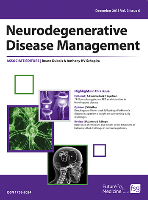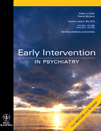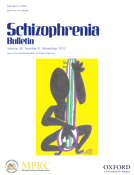
JPAD-Journal of Prevention of Alzheimers Disease
Scope & Guideline
Innovative Research for a Brighter Memory Future
Introduction
Aims and Scopes
- Prevention Strategies and Interventions:
The journal emphasizes the development and evaluation of various prevention strategies aimed at delaying or preventing cognitive decline and Alzheimer's disease. This includes lifestyle modifications, dietary interventions, and community-based programs. - Biomarkers and Diagnostic Tools:
Research on biomarkers for early detection and diagnosis of Alzheimer's disease is a core focus. This includes studies on blood, imaging, and genetic biomarkers that can help identify individuals at risk and monitor disease progression. - Cognitive Function Assessment:
JPAD publishes studies that explore cognitive assessments and their relevance in clinical and community settings. This includes the validation of new cognitive tests and the use of digital tools to evaluate cognitive function. - Health Equity and Access:
The journal addresses disparities in Alzheimer's disease research and treatment, focusing on recruitment strategies for underrepresented populations in clinical trials and the role of social determinants of health. - Innovative Therapeutic Approaches:
Research into new therapeutic strategies, including pharmacological and non-pharmacological interventions, is a significant area of interest. This includes studies on the efficacy of new drugs, dietary supplements, and lifestyle changes. - Longitudinal Studies and Cohort Analyses:
JPAD often features longitudinal studies that track cognitive decline over time, providing insights into the progression of Alzheimer's disease and associated risk factors.
Trending and Emerging
- Digital Health Interventions:
The use of digital technologies for cognitive assessments, monitoring, and interventions is rapidly gaining traction. Research exploring how mobile applications and online platforms can enhance cognitive health is increasingly prevalent. - Personalized Medicine Approaches:
There is a growing emphasis on personalized medicine in Alzheimer's research, with studies focusing on tailoring interventions based on individual genetic, lifestyle, and health profiles. - Multidomain Lifestyle Interventions:
Research on multidomain interventions that combine dietary, physical, and cognitive activities to prevent cognitive decline is on the rise, reflecting an integrated approach to Alzheimer's prevention. - Community Engagement in Research:
The journal is increasingly highlighting the importance of community engagement in Alzheimer's research, particularly in recruiting diverse populations for clinical trials and addressing health disparities. - Neuroinflammation and Immune Response:
Emerging research into the role of neuroinflammation and the immune response in Alzheimer's disease is gaining prominence, with studies investigating therapeutic strategies targeting these pathways. - Social Determinants of Health:
There is an increasing focus on how social determinants, such as socioeconomic status and access to care, impact cognitive health and the progression of Alzheimer's disease.
Declining or Waning
- Historical Epidemiological Studies:
There has been a noticeable decrease in the publication of traditional epidemiological studies that solely focus on historical data without integrating contemporary methods or innovative approaches. - Single-Factor Risk Assessments:
Research solely emphasizing single-factor risk assessments for Alzheimer's disease is declining. The trend is moving towards multifactorial approaches that consider a combination of genetic, environmental, and lifestyle factors. - Basic Science Research:
Studies focused exclusively on basic biological mechanisms of Alzheimer's disease without practical implications for prevention or intervention are becoming less frequent, as the journal emphasizes translational research. - Pharmacological Monotherapy Trials:
There is a waning interest in studies that evaluate the effectiveness of pharmacological monotherapies for Alzheimer's treatment, as the focus shifts towards combination therapies and holistic approaches.
Similar Journals

Psychiatry Investigation
Advancing the Frontiers of Mental Health ResearchPsychiatry Investigation is a prominent, peer-reviewed journal published by the Korean Neuropsychiatric Association, focusing on advancements in the fields of psychiatry and mental health. With an ISSN of 1738-3684 and an E-ISSN of 1976-3026, this journal has steadily gained recognition within the academic community since its inception in 2006. Spanning a dynamic spectrum of research topics, it aims to disseminate innovative findings and facilitate discussions that contribute to the understanding and treatment of psychiatric disorders. As evidenced by its current Scopus rankings—positioned in the Q2 category for Psychiatry and Mental Health and the Q3 category for Biological Psychiatry—the journal is committed to maintaining high scholarly standards and impactful research contributions. Although fully open access is not available, the relevance of its content ensures that it remains a critical resource for researchers, clinicians, and students alike, furthering knowledge and practices in the field of mental health.

Aktualnosci Neurologiczne
Illuminating the Path of Neurological DiscoveryAktualnosci Neurologiczne is a renowned open-access journal dedicated to the field of neurology, published by Medical Communications. As a crucial platform for the dissemination of neurological research, it has been operational since 2005, fostering an inclusive environment for scientific discourse and innovation. With an ISSN of 1641-9227, the journal aims to bridge the gap between clinical practice and research, offering a diverse range of articles that cover the latest developments in neurological science. Although its coverage in Scopus was discontinued after 2017, the journal continues to maintain a robust archive of scholarly articles that contribute to understanding neurological disorders. Researchers, healthcare professionals, and students interested in the latest trends and studies in neurology will find Aktualnosci Neurologiczne an invaluable resource, providing insights that drive advancements in the field. The journal operates from its address in Warsaw, Poland, and invites contributions from the global research community to enrich its content and impact.

Neurodegenerative Disease Management
Empowering Professionals in Neurology and BeyondNeurodegenerative Disease Management is a distinguished journal published by FUTURE MEDICINE LTD, focusing on the pivotal issues surrounding the management of neurodegenerative diseases. Since its inception in 2014, this journal has emerged as a significant resource within the fields of medicine and neurology, currently holding a respected position with a Q2 category ranking in Medicine (miscellaneous) and Q3 in Neurology (clinical) for 2023. With an ISSN of 1758-2024 and E-ISSN 1758-2032, the journal provides a platform for the dissemination of innovative research, clinical practices, and advancements in treatment strategies for conditions such as Alzheimer's, Parkinson's, and multiple sclerosis. The journal is particularly committed to enhancing knowledge sharing among researchers, health professionals, and students, contributing to the collective effort in combatting neurodegenerative diseases. Though not open access, its articles are meticulously curated to ensure high-quality, impactful contributions to the field, making it an essential reference for those engaged in neurology and related disciplines.

Early Intervention in Psychiatry
Empowering Change: Early Steps in Mental Health ResearchEarly Intervention in Psychiatry, published by WILEY, is an esteemed academic journal dedicated to advancing the field of psychiatry and mental health through rigorous research and innovative practices. Established in 2007 and continuing through 2024, this journal serves as a critical resource for researchers, clinicians, and students interested in the early detection and treatment of psychiatric disorders. With an ISSN of 1751-7885 and an E-ISSN of 1751-7893, it is recognized for its significant contributions, placing in the Q3 quartile in Biological Psychiatry and Q2 in Psychiatry and Mental Health as of 2023. The journal boasts impressive Scopus rankings, being placed 12th in Nursing - Psychiatric Mental Health and 27th in Neuroscience - Biological Psychiatry, showcasing its impact within the scientific community. While not an open-access journal, its findings are pivotal for those seeking to enhance mental health interventions. Early Intervention in Psychiatry is committed to fostering knowledge and improving practices that ultimately contribute to better mental health outcomes globally.

Multiple Sclerosis Journal-Experimental Translational and Clinical
Pioneering Pathways from Lab to Clinic in MS StudiesMultiple Sclerosis Journal-Experimental Translational and Clinical, published by SAGE Publications, Inc., is an essential open-access platform since 2015 dedicated to advancing research in the field of multiple sclerosis and related neurological disorders. With an ISSN of N/A and an E-ISSN of 2055-2173, the journal aims to bridge the gap between experimental studies and clinical applications, offering valuable insights into cellular and molecular neuroscience as well as clinical neurology. The journal holds a reputable Q3 ranking in Cellular and Molecular Neuroscience and a Q2 ranking in Neurology (Clinical) for 2023, indicating its significant contribution to these fields. Positioned at the intersection of scientific discovery and clinical practice, the Multiple Sclerosis Journal serves as an indispensable resource for researchers, clinicians, and students dedicated to improving outcomes for individuals affected by multiple sclerosis and related disorders. With a Scopus ranking of #163/400 in Medicine - Neurology and #67/97 in Neuroscience, this journal continues to play a pivotal role in shaping the future of neurological research and therapy.

SCHIZOPHRENIA BULLETIN
Illuminating the path to improved mental health.SCHIZOPHRENIA BULLETIN, published by Oxford University Press, stands as a leading journal in the field of psychiatry and mental health, particularly focusing on the complexities of schizophrenia. Established in 1973, this esteemed journal covers a wide spectrum of research areas, including clinical findings, neurobiology, epidemiology, and treatment approaches, making it indispensable for researchers and practitioners alike. With its current status in the Q1 category of the psychiatry and mental health disciplines, and a remarkable Scopus rank of #34 out of 567, the journal enjoys a strong impact factor, emphasizing its contribution to advancing knowledge in mental health. Although it operates on a subscription model, the significance of the journal in disseminating groundbreaking research makes it a vital resource for those committed to improving outcomes in schizophrenia. Through its rigorous peer-review process and commitment to high-quality scientific communication, SCHIZOPHRENIA BULLETIN continues to be at the forefront of psychiatric research and discourse.

Dementia and Geriatric Cognitive Disorders Extra
Unlocking insights into dementia and cognitive disorders.Dementia and Geriatric Cognitive Disorders Extra, published by KARGER in Switzerland, is an esteemed open-access journal dedicated to advancing research in the fields of cognitive neuroscience, geriatrics, and psychiatry. With a commitment to disseminating high-quality research since its inception in 2011, the journal plays a crucial role in highlighting innovative studies that address cognitive disorders associated with aging. As an open-access platform, it ensures that findings are accessible to a global audience, fostering collaboration and knowledge-sharing among researchers, professionals, and students alike. The journal has been recognized for its impact in Cognitive Neuroscience and Psychiatry and Mental Health, achieving a Q3 category ranking, indicating its reputable standing within these fields. By delivering cutting-edge insights and promoting interdisciplinary approaches, Dementia and Geriatric Cognitive Disorders Extra is instrumental in enhancing understanding and treatment of cognitive decline, making it a vital resource for anyone engaged in the study of aging and cognitive health.

Cerebral Circulation-Cognition and Behavior
Pioneering Research at the Intersection of Mind and MovementCerebral Circulation-Cognition and Behavior is an impactful journal published by Elsevier that focuses on the intersections of cerebral circulation, cognitive function, and behavioral science. Since its establishment in 2020, the journal has provided a vital platform for researchers and professionals in the fields of Behavioral Neuroscience, Biological Psychiatry, and Cognitive Neuroscience. With a current classification in the Q3 quartile across several neuroscience categories and a promising trajectory during its converged years (2020-2024), the journal highlights significant advancements in our understanding of the neural underpinnings of behavior. Although it is not open access, its commitment to quality research makes it an essential resource for anyone engaged in neurological, cognitive, and psychiatric studies. As discoveries in these fields continue to grow, Cerebral Circulation-Cognition and Behavior remains dedicated to disseminating influential findings that bridge the gap between cognition, behavior, and neural health.

Cancer Prevention Research
Advancing the frontiers of cancer prevention.Cancer Prevention Research, published by the American Association for Cancer Research, is a leading journal dedicated to advancing our understanding of cancer prevention strategies and their implementation in public health. With an ISSN of 1940-6207 and E-ISSN 1940-6215, this journal serves as a pivotal platform for researchers, healthcare professionals, and students who are committed to unraveling the complexities of cancer etiology and preventive measures. Since its inception in 2008, the journal has carved a niche in the scientific community, achieving notable rankings including Q2 in Cancer Research and Q1 in both Medicine (miscellaneous) and Oncology, highlighting its significance in disseminating influential research. Cancer Prevention Research is indexed in Scopus, reflecting a robust impact factor, and features a range of articles that address the preventive aspects of cancer to promote healthier populations. With access options available, it invites contributions that bridge laboratory findings with epidemiologic insights, making it an essential resource for anyone dedicated to reducing the burden of cancer globally.

JOURNAL OF NEUROPSYCHIATRY AND CLINICAL NEUROSCIENCES
Illuminating Pathways in Mental Health ResearchThe JOURNAL OF NEUROPSYCHIATRY AND CLINICAL NEUROSCIENCES, published by AMER PSYCHIATRIC PUBLISHING, INC, stands as a pivotal resource in the interdisciplinary fields of psychiatry, neurology, and mental health. With a history spanning from 1989 to 2024, this esteemed journal, identified by the ISSN 0895-0172 and E-ISSN 1545-7222, provides a platform for cutting-edge research and clinical insights into neuropsychiatric disorders. As of 2023, the journal is recognized in Q2 quartiles for Medicine (miscellaneous), Neurology (clinical), and Psychiatry and Mental Health, showcasing its significant impact within these domains, as evidenced by its Scopus rankings placing it in the 67th and 65th percentiles respectively. The journal emphasizes the importance of advancing knowledge through empirical studies, case reports, and reviews, making it an invaluable asset for researchers, clinicians, and students dedicated to understanding the complexities of the human brain and its psychological manifestations. Although the journal does not currently offer open access, it remains essential for those seeking to stay at the forefront of neuropsychiatric advancements.